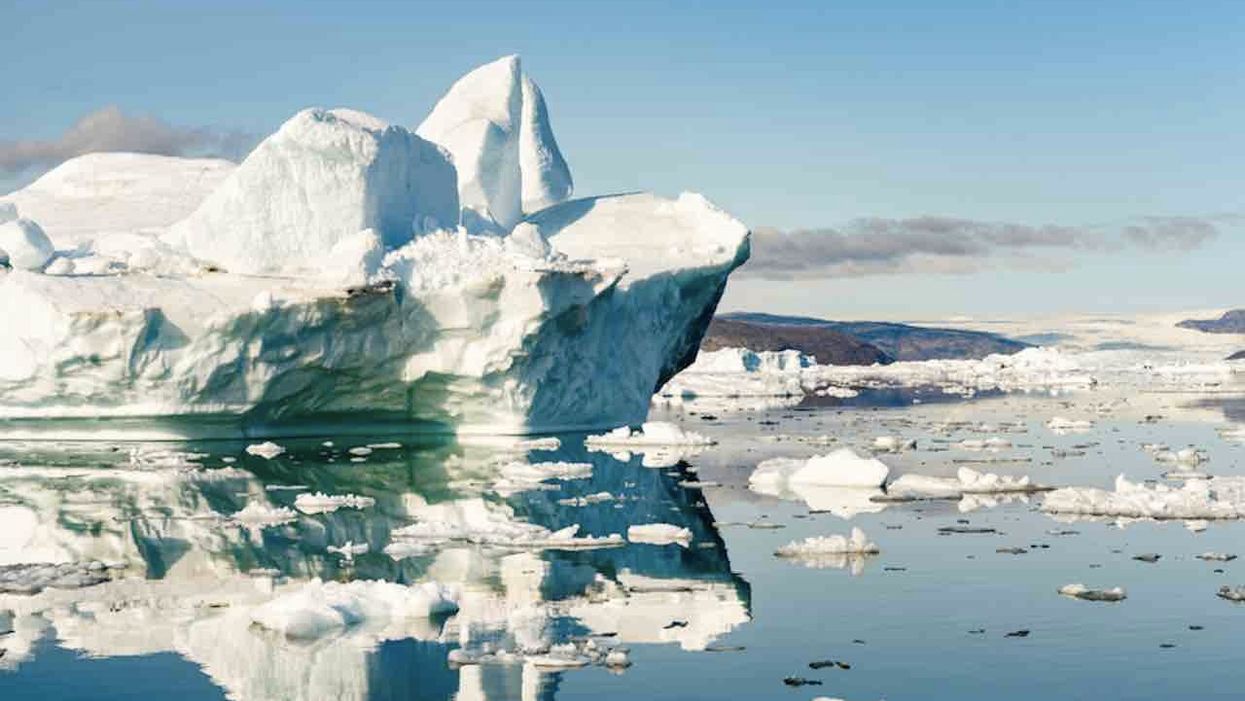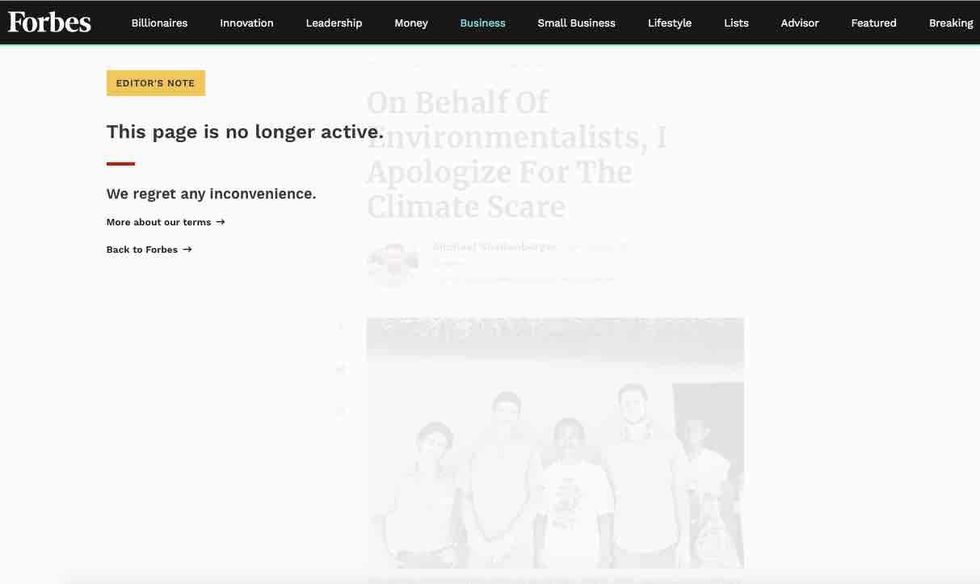
Photo by: Martin Zwick/REDA&CO/Universal Images Group via Getty Images

'Climate change is happening. It's just not the end of the world. It's not even our most serious environmental problem.'
Editor's note: TheBlaze does not take responsibility for Shellenberger's claims or vouch for their scientific accuracy. Shellenberger's article may contain scientific or factual inaccuracies. The focus of this article is solely upon the decision of Forbes to publish and then unpublish it. Shellenberger's claims are presented so that readers may understand some of the claims made in his article. For the perspective of some scientific experts who disagree with some of Shellenberger's claims, click here.
Michael Shellenberger is no slouch when it comes to environmental issues.
Besides his TED talks garnering more than 5 million views, he's a Green Book Award Winner, a frequent contributor to publications such as the New York Times, the Washington Post, the Wall Street Journal, Scientific American — and he also authored "Apocalypse Never: Why Environmental Alarmism Hurts Us All," which was released Tuesday by HarperCollins.
But Shellenberger said a Forbes article — "On Behalf of Environmentalists, I Apologize for the Climate Scare" — based on his new book was soon "censored" soon after it went up Sunday. The Daily Wire reported that his piece was taken down from the Forbes website "a few hours" after it was published. The Forbes site on Tuesday showed where Shellenberger's article should be — but only says it's "no longer active."

TheBlaze on Tuesday didn't immediately hear back from Forbes in regard to the reasons Shellenberger's article was removed or the reported time frame in which it was shuttered.
But Shellenberger has a few ideas on why his article is no longer there: "No book on the environment has ever been praised by a more prestigious group of scientists & scholars than 'Apocalypse Never,'" he wrote on Twitter. "And no book has ever been more devastating to green alarmism. No wonder they're so terrified you'll read it."
In a statement to the Daily Wire — which published his piece in its entirety — Shellenberger said, "I am grateful that Forbes has been so committed to publishing a range of viewpoints, including ones that challenge the conventional wisdom, and was thus disappointed my editors removed my piece from the web site. I believe Forbes is an important outlet for broadening environmental journalism beyond the overwhelmingly alarmist approach taken by most reporters, and look forward to contributing heterodoxical pieces on energy and the environment in the future."
Editor's note: Many scientific experts disagree with some of the claims in Shellenberger's article. For their perspective, click here.
Here's how Shellenberger opens his article: "On behalf of environmentalists everywhere, I would like to formally apologize for the climate scare we created over the last 30 years. Climate change is happening. It's just not the end of the world. It's not even our most serious environmental problem."
He also says he feels "an obligation to apologize for how badly we environmentalists have misled the public."
Shellenberger then details a list of "facts few people know":
"I know that the above facts will sound like 'climate denialism' to many people," he adds. "But that just shows the power of climate alarmism."
More from Shellenberger's article:
Some people will, when they read this imagine that I'm some right-wing anti-environmentalist. I'm not. At 17, I lived in Nicaragua to show solidarity with the Sandinista socialist revolution. At 23 I raised money for Guatemalan women's cooperatives. In my early 20s I lived in the semi-Amazon doing research with small farmers fighting land invasions. At 26 I helped expose poor conditions at Nike factories in Asia.
I became an environmentalist at 16 when I threw a fundraiser for Rainforest Action Network. At 27 I helped save the last unprotected ancient redwoods in California.
In my 30s I advocated renewables and successfully helped persuade the Obama administration to invest $90 billion into them. Over the last few years I helped save enough nuclear plants from being replaced by fossil fuels to prevent a sharp increase in emissions.
Until last year, I mostly avoided speaking out against the climate scare. Partly that's because I was embarrassed. After all, I am as guilty of alarmism as any other environmentalist. For years, I referred to climate change as an "existential" threat to human civilization, and called it a "crisis."
But mostly I was scared. I remained quiet about the climate disinformation campaign because I was afraid of losing friends and funding. The few times I summoned the courage to defend climate science from those who misrepresent it I suffered harsh consequences. And so I mostly stood by and did next to nothing as my fellow environmentalists terrified the public.
He also added some highlights from his new book:
Shellenberger writes toward the end of his piece, "Once you realize just how badly misinformed we have been, often by people with plainly unsavory or unhealthy motivations, it is hard not to feel duped."